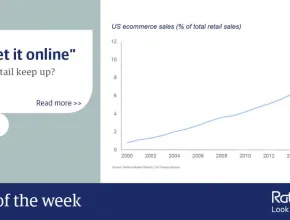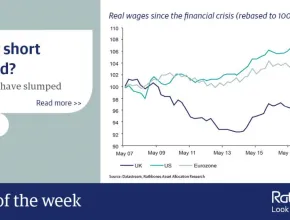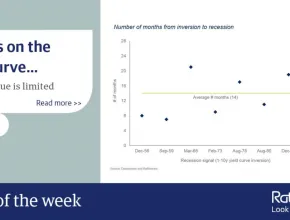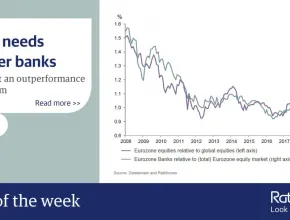Filters

Chart of the week: “Just get it online”
Last Updated: September 30, 2025
In some ways, retail is going through a similar transformation to that of the auto industry, when greater automation and systems seeped into manufacturing decades ago. Nowadays, retail shopping is less about swamping high streets with clothes or sofas in every size and colour. Far better to save your property budget for creating a huge and efficient logistics network to deliver what consumers want, to their door, overnight. In this just-in-time environment, quality data is pivotal. But, very few companies have it, and they tend to reside in Silicon Valley.

Brexit: What on earth's going on?
Last Updated: September 30, 2025
Theresa May has asked the European Union (EU) for a delay in the UK’s departure until 30 June, with EU officials indicating they would only grant an extension on the grounds of Parliament agreeing a deal.

Chart of the week: Feeling short changed?
Last Updated: September 30, 2025
Unfortunately for us, this decimation in the standard of living is unique to the UK. Not only have real wages struggled since 2008, we now have the poorest rate of social mobility of any advanced major economy. Our future is uncertain, and that can’t just be blamed on Brexit. Edward Smith, Rathbones’ head of asset allocation research, discussed his concerns about our small but troubled economy and considered our future at our annual investment conference.

Rathbones clarifies changes to published AUM figures for UK-domiciled and Luxembourg-domiciled funds
Last Updated: September 30, 2025
As announced on 18 February 2019, Rathbones has made changes to its Luxembourg domiciled SICAV in preparation for a post-Brexit regulatory environment.

Beat the ISA rush for better returns
Last Updated: September 30, 2025
Given the potential of ISAs to provide tax-efficient gains that compound over time, it makes sense to invest earlier in the year. Doing so could mean greater growth in your portfolio and allow you to reach your investment goals sooner.

Chart of the week: All eyes on the yield curve…
Last Updated: September 30, 2025
As the joke goes, an inverted yield curve has predicted 11 of the past nine recessions. Its traditionally one of the most reliable harbingers of economic recession but a closer look at timings show that its use is limited. Over the past 50 years, the number of months from inversion (defined here as 1-year US Treasury yields surpassing 10-year yields) to recession has ranged from seven up to 24, averaging 14. So, an inverted yield curve has proved to be a reliable indication of recession, but not its timing.

Investment Update Q2 2019
Last Updated: September 30, 2025
The party goes on; just jazz, not rock and roll

FE Alpha Manager Hall of Fame
Last Updated: September 30, 2025
James Thomson, is named as one of 61 fund managers entering the FE Alpha Manager Hall of Fame for 2019.

A better place to be
Last Updated: September 30, 2025
As we move into the new financial year we begin to access the outlook for global markets as we look out to 2020 and beyond. How can investor’s best position themselves amid changing central bank policies and geopolitical risks? David Coombs, Head of multi-asset investments at Rathbones discusses.

Either you’re good or you’re dead
Last Updated: September 30, 2025
More than anything else, one thing has been at the top of our mind lately: in business, if you’re not the cheapest or the best, you’re toast.

Investment Insights Q2 2019
Last Updated: September 30, 2025
As the UK works through a significant moment in history, policies that boost trade and investment could relieve the country’s economic malaise.

Chart of the week: Europe needs healthier banks
Last Updated: September 30, 2025
Large loan-loss provisions hamper Europe’s banks. These provisions cover things like bad loans and customer defaults and cost the sector a lot. The problem is particularly acute in Portugal and Italy but still prevalent in all the major European economies. The region needs recovery in its banking sector before the long-awaited upswing in its indices can begin. Until Europe’s banks free themselves from bad debt, the region will remain stuck in economic mud.
